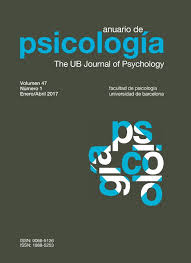Reporting single-case design studies: Advice in relation to the designs’ methodological and analytical peculiarities
DOI:
https://doi.org/10.1344/%25xKeywords:
Single-case designs, Reporting, Data analysis, Quality standardsAbstract
The current text provides advice on the content of an article reporting a single-case design research. The advice is drawn from several sources, such as the Single-case research in behavioral sciences reporting guidelines, developed by an international panel of experts, scholarly articles on reporting, methodological quality scales, and the author's professional experience. The indications provided on the Introduction, Discussion, and Abstract are very general and applicable to many instances of applied psychological research across domains. In contrast, more space is dedicated to the Method and Results sections, on the basis of the peculiarities of single-case designs methodology and the complications in term s of data analysis. Specifically, regarding the Method, several aspects strengthening (or allowing the assessment of) the internal validity are underlined, as well as information relevant for evaluating the possibility to generalize the results. Regarding the Results, the focus is put on justifying the analytical approach followed. The author considers that, even if a study does not meet methodological quality standards, it should include sufficiently explicit reporting that makes possible assessing its methodological quality. The importance of reporting all data gathered, including unexpected and undesired results, is also highlighted. Finally, a checklist is provided as a summary of the reporting tips.Downloads
Issue
Section
Articles
License
The authors who publish in this journal agree to the following terms:- Authors transfer to the publisher all copyright for the full term of protection and for all the world.
- Texts will be published with all rights reserved
- The authors can post a copy of their articles in accordance with the policy of free access to the journal.


